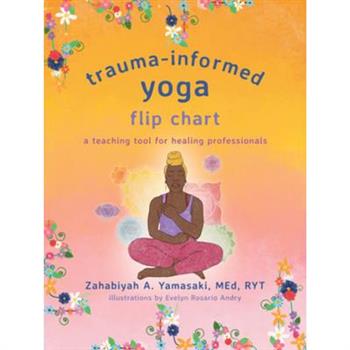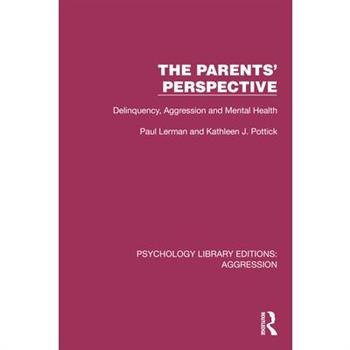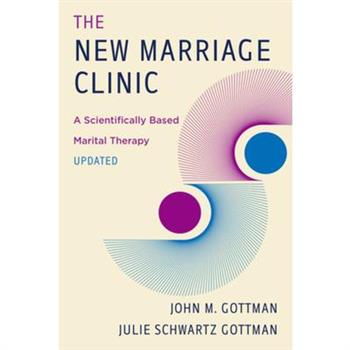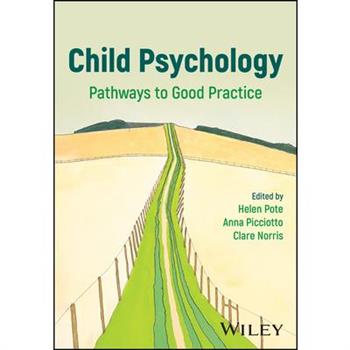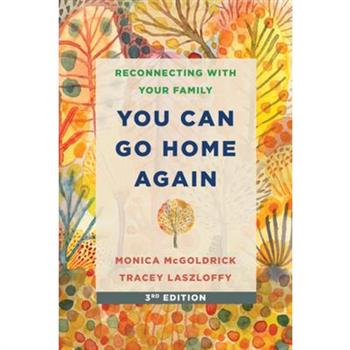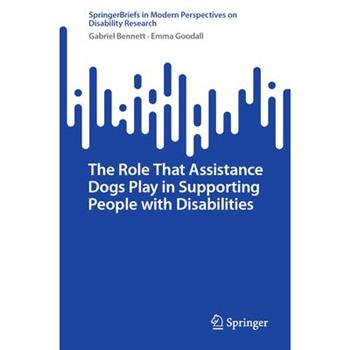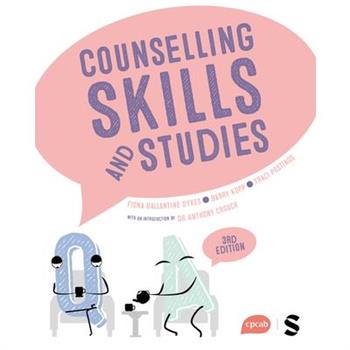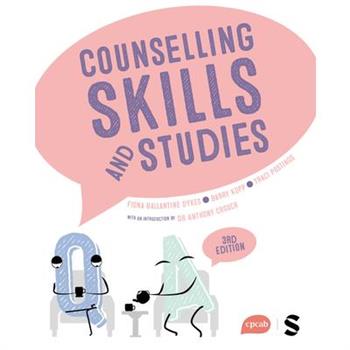The Routledge International Handbook of Human-Animal Interactions and Anthrozoology
This diverse, global, and interdisciplinary volume explores the existing research, practice, and ethical issues pertinent to the field of human-animal interactions (HAIs), interventions, and anthrozoology, focusing on the perceived physical and mental health benefits to humans and the challenges derived from these relationships.The book begins by exploring the basic theoretical principles of anthrozoology and HAI, such as the evolution and history of the field, the importance of language, the economic costs and current perspectives to physical and mental wellbeing, the origins of domestication of animals, anthropomorphism, and how animals fit into human societies. Chapters then move onto practice, covering topics such as how animals help childhood and adulthood development, pet ownership, disability, the roles of pets for people with psychiatric disorders, the links between animal and domestic abuse, and then more widely into the therapeutic roles of animals, animal-assisted therapies, interactions outside the home, working animals, animals in popular culture, and animals in research, for leisure, and food. Including chapters on a wide range of animals, from domesticated pets to wildlife, this collection examines the benefits yet also reveals the complexity, and often dark side, of human-animal relations. Interweaving accessible commentaries with revealing chapters throughout the text, this collection would be of great interest to students and practitioners in the fields of mental health, psychology, veterinary medicine, zoology, biology, social work, history, and sociology.
Women’s Perspectives on the Solution Focused Approach
This book is a distinctive collection of narratives of female Solution Focused practitioners, from across six continents, sharing their unique ways of using the approach at personal, professional, and social levels.Nineteen female practitioners from around the world share their practice and experience, and reflect on how their gender has influenced their work within different cultural, sociological, and socio-economic contexts. The editors introduce the concepts of a Solution Focused DNA and then encourage the contributors as well as the readers to answer questions such as: What are the common characteristics that are a part of your Solution Focused DNA? Which of them are related to gender, which of them to the Solution Focused Approach, and which of them to your sociocultural context? Contributors also provide insights on how they work from the Solution Focused approach integrating their own creative styles using embodiment and dance, animal assisted therapy, and humour. The chapters in this book explore a wide variety of themes and contexts, including shelters, trauma, the LGBTQ community, prisons, schools, refugee camps, veterans, the medical field, research, children, and more.This book will inspire practitioners regardless of gender to reflect on their own practice and to use and apply the Solution Focused Approach in innovative and creative ways.
Resilience and Military Families
This textbook aims to educate students across all mental health disciplines on the importance of using strengths-based resilience as a tool when working with military families. Organized into three main sections using the military deployment cycle, including the stages of pre-deployment, deployment, and post-deployment, this textbook examines some of the key resiliency skills that operate in military families so that students can understand how many families not only survive, but learn how to thrive, during great challenges. Chapters address the military at home, resilient family systems, the importance of effective communication and social support, the impact of trauma and moral injury, and the transition from military to civilian life following service. Filled with case vignettes, self-assessment tools, and evidence-informed interventions, readers learn multiple ways to measure, assess, and strengthen family resiliency throughout the book. In addition to these skills, specific examples are highlighted that draw lessons from the military community on stress management and posttraumatic growth in the context of family life. The book finishes with an appendix that includes suggestions for therapists on the use of cultural humility to improve treatment.Following two decades of war and a global pandemic, this essential textbook is a crucial read for all mental health professionals training to work with miliary-connected populations and their families. Professionals from disciplines including clinical social work, marriage and family therapy, psychology, healthcare, and theology as well as instructors of courses on military social work, military psychology, and mental health will all find this text an invaluable resource.
Trauma-Informed Yoga Flip Chart
Trauma-Informed Yoga Flip Chart is a compassionate educational tool for anyone looking to share trauma-informed yoga as a healing modality with others. Featuring beautiful illustrations, this practical and evidence-based flip chart explores concepts such as the neurobiology of trauma, the nervous system, the impact of trauma on the chakras, and a detailed overview of the frameworks of trauma-informed yoga. The flip chart format is an accessible and interactive way for healing professionals (including therapists, educators, and yoga teachers) to explain trauma-informed yoga to clients or to train other professionals in this modality.Designed for a multitude of audiences who are interested in exploring holistic frameworks of care, this is a comprehensive toolkit for anyone holding space for the nonlinear journey of healing through a trauma- and nervous-system-informed perspective.
Anti-Oppressive Psychotherapeutic Practice
This book supports mental health practitioners in showing how they personally intersect with oppression, helping them explore how it shows up in their practice and providing them with tools to offer anti-oppressive care.Written in an accessible and spiritual tone, chapters discuss the human need for connection as well as demonstrate the oppression through a social, neuroscientific, and biological lens as something that resides and can be passed on generationally. St. Aime interrogates the idea of the moral cloak symbiotic with whiteness and encourages readers to separate themselves from their profession to become a reflective rather than defensive clinician. She defines anti-oppressive practice as a clinical approach that considers the systemic, intergenerational, sociocultural and political influences on the lives of individuals and identifies the pillars of anti-oppressive practice as interconnectedness, interdependence, boundless curiosity, and vulnerability. With chapters including both experimental and practical exercises to use with clients as well as alone, this book encourages clinicians to undergo the process of unlearning the internalized oppressions that exist within themselves to change the therapeutic power exchange and provide the best care possible.This book is essential reading for clinical social workers in practice and in training, as well as for psychotherapists, counselors, marriage and family therapists, and other mental health practitioners.
How I Escaped The Trauma Cult (And You Can Too, If You Want To)
Break free from the past and embrace a future of hope and happiness with Silvia Hartmann's "How I Escaped The Trauma Cult."The Madness Of The Western World - An Exponential Curve Of Insanity has engulfed our societies. At the root of this tsunami of mental illness is the cult of childhood trauma, a fairy tale that came to haunt us all. In order to stop driving ourselves, our children and our fellow citizens crazy, it is of the essence to escape the fish tank of insanity - escape the Trauma Cult.Thought Provoking & Uplifting - This Book Is A Must-Read"How I Escaped The Trauma Cult" is a thought-provoking and ultimately uplifting read. Silvia Hartmann's courageous challenge to the status quo in psychological thinking is both necessary and timely. Her innovative approach to understanding and overcoming trauma offers a beacon of hope for those seeking a more positive and empowered path to healing.For anyone feeling constrained by the traditional narratives of trauma, this book is a must-read. It invites readers to look beyond their past wounds and to embrace a future filled with potential and positivity. While it may spark some controversy, its core message of love, empowerment, and transformation is one that resonates deeply and has the potential to inspire significant change.Unlock Your Freedom and Heal Your SoulAre you trapped in a cycle of negativity, trauma, and emotional pain? Do you feel like traditional psychology and therapy have failed to bring you the peace and healing you desperately seek? It's time to break free from the chains of the trauma cult and embrace a revolutionary path to emotional wellness and true happiness.Introducing "How I Escaped The Trauma Cult" by Silvia HartmannIn this ground-breaking book, Silvia Hartmann, a pioneer in modern energy and emotional healing, shares her personal journey of escaping the oppressive grip of the trauma cult-a pervasive matrix of destructive beliefs and practices that dominate modern psychology. With profound insight and practical wisdom, Hartmann unveils a new paradigm for understanding and overcoming trauma, rooted in love, positivity, and the transformative power of modern energy.What You'll Discover Inside: The Cult of Trauma: Understand how modern psychology's fixation on trauma perpetuates suffering and keeps individuals trapped in a negative cycle.Love Is Real: Explore the profound impact of love and positive attention on healing and emotional well-being.The Trauma Lens: Learn how false memories and the medicalization of mental health contribute to the trauma industry's stranglehold on your emotions.Escaping the Fish Tank of Insanity: Discover why traditional psychology steals the hope of healing and how you can reclaim your emotional freedom.Star Matrix - A New Way: Embrace the revolutionary Star Matrix approach to healing, focusing on positive energy, love, and real-life transformation.Practical Healing Techniques: Gain access to practical exercises and methods that can help you break free from trauma and build a life filled with joy and purpose.About the AuthorSilvia Hartmann is a renowned author and the originator of Modern Energy. Her work spans various fields, including energy psychology, emotional healing, and creative empowerment. Hartmann's innovative approaches have transformed countless lives, helping individuals break free from negative cycles and achieve profound personal growth.
Making Mental Health
Making Mental Health: A Critical History historicises mental health by examining the concept from the 'madness' of the late nineteenth century to the changing ideas about its contemporary concerns and status. It argues that a critical approach to the history of psychiatry and mental health shows them to constitute a dual clinical-political project that gathered pace over the course of the twentieth century and continues to resonate in the present. Drawing on scholarship across several areas of historical inquiry as well as historical and contemporary clinical literature, the book uses a thematic approach to highlight decisive moments that demonstrate the stakes of this engagement in Anglo-American contexts.By tracing the (unfinished) history of institutions, the search for cures for psychiatric distress, the growing interest of the nation-state in mental health, the history of attempts to globalise psychiatry, the controversies over the politics of diagnostic categories that erupted in the 1960s and 1970s, and the history of theorising about the relationship between the psyche and the market, the book offers a comprehensive account of the evolution of mental health into a commonplace concern.Addressing key questions in the fields of history, medical humanities, and the social sciences, as well as in the psychiatry disciplines themselves, the book is an essential contribution to an ongoing conversation about mental distress and its meanings.The Open Access version of this book, available at http: //www.taylorfrancis.com, has been made available under a Creative Commons Attribution-Non Commercial-No Derivatives (CC-BY-NC-ND) 4.0 license.
LGBTQ+ Intimate Partner Violence
This book explores the unique issues involved in assessing, diagnosing, intervening, and treating intimate partner violence (IPV) in the LGBTQ+ population.Currently, there is little to no instruction regarding this topic in training programs, and this volume is the culmination of an effort to remedy this deficit. The authors draw upon clinical examples and research from the IPV programs in their own organization as well as external research to provide a comprehensive overview. Chapters span topics that include definitions of IPV, its history, relevant issues within the LGBTQ+ community, the unique facets of LGBTQ+ IPV and its assessment and diagnosis. Case examples indicate how an assessment should be carried out and how to develop appropriate and effective interventions and treatment plans.This book will empower clinicians to assess for and treat LGBTQ+ IPV whenever and wherever they encounter it.
Reimagining Mental Health and Addiction Under the Covid-19 Pandemic, Volume 2
This edited collection is a follow-up to Algoma University's inaugural conference on mental health and addiction held at the Brampton campus in Ontario, Canada. We live in a society where many marginalized communities continue to bear a historically disproportionate burden on their psychological, mental, and economic well-being, especially under the Covid-19 pandemic. Covid-19 has had a continuing impact on marginalized and racialized communities at all levels. We are now witnessing the compounded effects in the form of a worsening mental health and addiction crisis and its subsequent impact on children's education, service delivery, and overall psychosocial well-being. Covid-19 has widened the gap and increased poverty disparities between high-income and low-income individuals. Furthermore, it has affected the psychosocial resilience of people. As communities of scholars, practitioners, and researchers, we have a responsibility to address these existential issues in ways that are ethical and transformative. This type of engagement should help mitigate the consequences of the pandemic in an intersectional manner. These conversations should assist us in understanding and addressing the trauma and suffering that marginalized communities and individuals continue to endure. Together, we can work to find answers to mental health and addiction challenges, while valuing people's histories and realities within this intersectional engagement. This book aims to redefine psychiatric discourse in the age of the pandemic and encourage us to imagine how the world can be reformed in ways that are both ethical and political. It has the potential to shed light on the values and realities of communities in discussions of medical sociology, particularly concerning the impact of Covid-19 on marginalized communities. This book is structured into three volumes. Volume one delves into the repercussions of the COVID-19 pandemic on the mental health of various ethnic groups. Volume two specifically addresses the impact of the pandemic on the mental health of Afro-Black individuals. Volume three explores the connections between the COVID-19 pandemic, psychological well-being, and colonialism.
Reimagining Mental Health and Addiction Under the Covid-19 Pandemic, Volume 3
This edited collection is a follow-up to Algoma University's inaugural conference on mental health and addiction held at the Brampton campus in Ontario, Canada. We live in a society where many marginalized communities continue to bear a historically disproportionate burden on their psychological, mental, and economic well-being, especially under the Covid-19 pandemic. Covid-19 has had a continuing impact on marginalized and racialized communities at all levels. We are now witnessing the compounded effects in the form of a worsening mental health and addiction crisis and its subsequent impact on children's education, service delivery, and overall psychosocial well-being.Covid-19 has widened the gap and increased poverty disparities between high-income and low-income individuals. Furthermore, it has affected the psychosocial resilience of people. As communities of scholars, practitioners, and researchers, we have a responsibility to address these existential issues in ways that are ethical and transformative. This type of engagement should help mitigate the consequences of the pandemic in an intersectional manner. These conversations should assist us in understanding and addressing the trauma and suffering that marginalized communities and individuals continue to endure. Together, we can work to find answers to mental health and addiction challenges, while valuing people's histories and realities within this intersectional engagement.This book aims to redefine psychiatric discourse in the age of the pandemic and encourage us to imagine how the world can be reformed in ways that are both ethical and political. It has the potential to shed light on the values and realities of communities in discussions of medical sociology, particularly concerning the impact of Covid-19 on marginalized communities.This book is structured into three volumes. Volume one delves into the repercussions of the COVID-19 pandemic on the mental health of various ethnic groups. Volume two specifically addresses the impact of the pandemic on the mental health of Afro-Black individuals. Volume three explores the connections between the COVID-19 pandemic, psychological well-being, and colonialism.
The Parents' Perspective
Originally published in 1995, this book describes and analyzes the way urban parents view the problems of their adolescent children, and the way they have tried to cope with and seek help for them. Based on the study of parents as third-party help-seekers in and around Newark, New Jersey, the book sheds light on the types of problems experienced by adolescents in similar communities throughout the country.By focusing on the parents, who usually bring the youth into the legal or mental health system, this book provides numerous unique insights into the nature of problems among urban youths. It describes how certain legal and psychological problems often coexist, examines the reasons for this, and shows how this knowledge can be used to improve the delivery of youth and family services.
Traumatic Stress
Traumatic Stress provides a well-written and accessible overview of traumatic stress studies.With its pioneering lead author, this book reviews the full range of clinical disorders that may result from extreme stress, with particular emphasis on posttraumatic stress disorder (PTSD). It synthesizes the current literature on traumatic stress, including psychological theories of stress and trauma; the biology of stress and trauma reactions; and the factors prior to, during, and after traumatic events that place people at particular risk for the development of psychological problems. It also covers the use of medication and a range of psychological treatments. Completely revamped with new case studies and research, the book gives important updates on biological research and therapy, as well as changes in diagnostic classifications. The new edition will continue to be essential reading for undergraduate and postgraduate students, as well as busy professionals working in this field who want a concise update on disorders related to traumatic stress.
Traumatic Stress
Traumatic Stress provides a well-written and accessible overview of traumatic stress studies.
The New Marriage Clinic
The highly influential book The Marriage Clinic presented a complete marital therapy program based on John Gottman's much-heralded research on marital success and failure. Since then, Dr. Gottman has collaborated with his wife, clinical psychologist Dr. Julie Gottman, to conduct their well-known Love Lab studies, allowing the pair to design a highly successful couples' workshop and develop their Sound Relationship House theory. Now, in the book's first-ever revision, Dr. Gottman and Dr. Gottman incorporate the results of their studies and their most powerful interventions. In addition to its original, celebrated marital therapy program, The New Marriage Clinic includes findings on the dynamics of same-sex couples, interventions for couples recovering from situational domestic violence, strategies for couples rebuilding their marriages after an affair, and much more. No relational therapist's bookshelf is complete without this vital update to the groundbreaking guide on marital therapy.
Brief CBT and Science-Based Tailoring for Children, Adolescents, and Young Adults
This book highlights the ongoing trend of brief treatments in psychotherapy for child and adolescent populations. Whereas their therapeutic predecessors may have taken 15 to 20 one-hour sessions or more, these newer therapies may begin to alleviate symptoms in only weeks, days, or even hours on the same day. Interest in child and adolescent brief and intensive therapies is currently at an all-time high on the heels of research showing impressive results for these interventions. Treatments such as One-Session Treatment for specific phobias which occurs in only one, three-hour session or Intensive Cognitive-Behavioral Therapy with Exposure and Response Prevention for obsessive-compulsive disorder which occurs 3-5 times weekly in 1-3-hour sessions over several weeks, are prominent examples. This volume builds on this growing interest and the emerging child and adolescent research, summarizing the efficacy of these interventions. Further, this volume will include key introductory chapters on the emergence of brief and intensive therapies, the ethics of their use, their cost-effectiveness, and the current state of the science. Brief therapies for specific disorders and via specific methodologies comprise separate chapters. Each chapter incorporates an exemplar case study (including a case overview, formulation/conceptualization, treatment description, follow-up, and recommendations for refractory cases). Also included are multicultural insights and ethical considerations. Furthermore guidance is provided on how to use the current and ongoing evidence base to inform formulation and treatment. This volume is timely and thorough in its presentation of the relevant literature and provides a much-needed resource for students, practitioners, and researchers alike. In a moment where youth mental health problems are on the rise, this is the book we need! Tara Peris, Ph.D. UCLA Like Superman squeezing coal into diamonds, Davis and Storch have compiled the definitive guide to brief, concentrated psychotherapy. Eli Lebowitz, Ph.D. Yale Child Study Center Davis and Storch score big in this edited volume on Brief, Intensive, and Concentrated treatments for a host of childhood problems. Thomas Ollendick, Ph.D. Virginia Tech
Evolutionary Case Formulation
This book presents the Evolutionary Case Formulation model, a new proposal of case formulation protocol developed with the aim of providing psychotherapists with a common language to identify and treat psychological problems of varying complexity. This new case formulation model was developed based on the analysis of textual data in complete psychotherapeutic processes which led to the identification of different dimensions of intersubjective meaning elaboration that are a product of our evolution as a species. The Evolutionary Case Formulation model is based on a system of first and second order intersubjective knowledge domains. The first order knowledge domain is the Self System, which is ubiquitous in the processing of information and creation of individual meaning in a cultural intersubjective matrix. The second order knowledge domains are the different dimensions of intersubjective meaning elaboration: Cognition, Emotion, Interpersonal, Imagination, Corporeality, Sexuality and Religiosity/Spirituality. This system provides psychotherapists with a new conceptual framework to work with patients in the different stages of the psychotherapeutic process, from assessment to treatment planning and implementation. The book Evolutionary Case Formulation: Developing a Unified Language for the Practice of Psychotherapy, that the reader has in their hands, was first published in Spanish in 2021. This English edition is a fully revised and updated version of the original Spanish edition. More specifically, the case formulation protocol presents a series of innovations that are not present in the Spanish edition. In other words, it is a protocol that includes numerous clarifications in the intersubjective knowledge domains, making this book different. The original manuscript of this book was written in Spanish and translated into English with the help of artificial intelligence. The author (with the friendly support of a bilingual psychotherapist) has subsequently revised the text further in an endeavor to refine the work stylistically.
Hard-working Ninja
How do you develop a hard work ethic?Hard-working Ninja finds out you have to value a hard work ethic first! Find out what happens in this new Ninja Life Hacks story about working hard.Life is hard! It's even harder for children who are just trying to figure things out. The new children's book series, Ninja Life Hacks, was developed to help children learn valuable life skills. Fun, pint-size characters in comedic books easy enough for young readers, yet witty enough for adults.The Ninja Life Hacks book series is geared to kids 4-10. Perfect for boys, girls, early readers, primary school students, or toddlers. Excellent resource for counselors, parents, and teachers alike.Collect the entire Ninja Life Hacks book collection!Ninja Life Hacks Emotions and Feelings Box SetNinja Life Hacks Growth Mindset Box SetNinja Life Hacks Leadership Box SetNinja Life Hacks Mover and Shaker Box SetNinja Life Hacks Self-Management Box SetNinja Life Hacks Self-Awareness Box SetNinja Life Hacks Decision-Making Box SetNinja Life Hacks Social Awareness and Relationship Skills Box SetNinja Life Hacks Ninjas Go! Box SetNinjas on Holiday Box SetNinja Life Hacks Mindsets Box SetNinja Life Hacks Behaviors Box SetAngry Ninja Toy Box SetNinja Life Hacks Emotions and Feelings Toy Box SetNinja Life Hacks Reversible Toy Box Set
Tazkiya Therapy in Islāmic Psychotherapy
This book explores tazkiya therapy, a holistic psychological approach based on Qur'anic guidance and rooted in the understanding of human beings as multidimensional -that is, physical, psychological, social and spiritual beings.The book starts with a detailed explanation or the object, the process and the purpose of tazkiya therapy, along with an account of the boundaries and the enabling factors of the approach. Rather than a singular theoretical framework, tazkiya therapy is a dynamic and flexible approach that integrates multiple frameworks and disciplines to grow the human soul, cognition, emotion and behaviour. Although it is a multidimensional approach, the process of therapy is step-by-step, and the middle part of the book presents the key stages in the approach. Within these steps, the therapist is given seven different approaches that they can customise to the needs of the client depending on whether they need assistance with thinking patterns, emotional disturbance, a behavioural problem or a dysfunctional nervous system. The book ends with a comprehensive summary of the model, a series of case studies, a future outlook on training and an application for continuing the study and practice of tazkiya therapy.This book, based on the foundation that tazkiya therapy covers issues that are spiritual in nature and always connects to Allah in facilitating the healing process, will fulfil the needs of practicing Muslim psychologists, psychiatrists and students of psychology and Islāic studies.
An Introduction to Family Therapy 5e
"Systemic family therapy owes a debt of gratitude to Rudi Dallos and Ros Draper who have delivered a fifth edition of the book that has provided essential scaffolding for systemic family therapists for over two decades. This latest edition holds onto its original, clear, and coherent telling of the development of systemic family therapy."Rachel Watson, Institute of Family Therapy, London, UK"Like a well-constructed remix Rudi Dallos and Ros Draper have provided a tour through the landscape of family therapy and systemic practice, from its historical beginnings through to the here-and-now...I recommend this book without hesitation and reservation. This remix should be "listened to" and returned to many times, as it keeps on giving."Dr Ram籀n Karamat Ali, MSc Research Lead, Manchester, UK; Director of Training and Development at KA Conversations Ltd."With genuine enthusiasm, I wholeheartedly recommend An Introduction to Family Therapy, 5th edition by Dallos & Draper."Dr Sonam Pelden, Academic Lead for Counselling, School of Arts and Humanities, Edith Cowan University, AustraliaThe fifth edition of the bestselling An Introduction to Family Therapy provides a comprehensive overview of the core concepts informing family therapy and systemic practice, covering the development of this innovative field from the 1950s to the present day.The book considers both British and International perspectives and includes the latest developments in current practice, regulation and innovation, examining these developments within a wider political, cultural and geographical context. The fully revised fifth edition also contains new material on: Developments in Neuropsychology and Trauma Theory and its relevance for family therapy practiceIllustrations of the techniques of the core schools of Family TherapyUpdates on the research basis of Family TherapyThis book is key reading for students and practitioners of family therapy and systemic practice as well as those from the fields of counselling, psychology, social work and the helping professions who deal with family issues.Rudi Dallos is Emeritus professor of Clinical Psychology, University of Plymouth, External examiner D. Clin. Psychology University Canterbury, Christ Church, External examiner, University of Roehampton. He presents training courses for the Institute of Family Therapy and Bowlby Centre London on a yearly basis. He also leads on a variety of training events - Relate UK, Australian FT association, Holland family therapy association, Associations for Family Therapy Ireland, Jersey and Plymouth. He offers clinical supervision in a variety of contexts including Gloucester Eating Disorder Services, Formulation Psychotherapy centre Dublin and Art therapies Ireland. Rudi is working independently as a family therapist and offer an early intervention service in Devon.Ros Draper is an independent family therapist with decades of experience in practice including working as an organisational consultant, working therapeutically with individuals, couples, families and groups as well as working as a supervisor for therapists and coaches.
The Relational Dimensions of Weight Management
The Relational Dimensions of Weight Management is a book for nonspecialist psychotherapists of any theoretical orientation to help patients concerned with weight management. Psychotherapy patients use their therapists as sounding boards to help them answer two questions: Do I need to lose weight? And, if I do need to lose weight, how should I go about it? Chapters provide therapists with the tools they need to help patients find personalized solutions to their weight loss concerns, to boost their self-image, and to deal with the judgment that is sometimes imposed by others, regardless of which weight management approach patients eventually embrace.
A Systemic Approach to Integrative Counselling
This book presents systemic psychotherapy to integrative counsellors by using the most common counselling modalities and turning them into systemic approaches.A Systemic Approach to Integrative Counselling teaches systemic theory and techniques gradually, delving into various ways for integrative counsellors to think from a systemic perspective, reframing a client's presenting problem as emerging from relationships and social context. The chapters discuss how to combine person-centred counselling with a systemic outlook, how to combine psychodynamic theory with ideas about circularity and relationships, and outlines ways to use cognitive-behavioural therapy, action techniques, drama techniques, gestalt therapy, and many counselling approaches systemically with individual clients. The author's conversational writing, accompanied with case studies and in-depth explanations of counselling techniques and theories, makes the material interactive and accessible.A Systemic Approach to Integrative Counselling will provide qualified and trainee counsellors with an in-depth systemic outlook on counselling modalities. It is also a helpful guide for scholars and researchers in related fields.
Assessing and Treating Emotionally Inexpressive Men
What if your new client, a man in his early 40s, cannot answer basic questions in your initial assessment interview? You were aware that many men do not like to talk about their feelings, but this client seems kind of frozen. You think he might be alexithymic, but you do not know how to assess for that, or even more importantly, how to treat it. Assessing and Treating Emotionally Inexpressive Men has answers. Chapters explain why some men are emotionally inexpressive because of their childhood socialization, and the book provides both scales for assessing alexithymia in men and treatment manuals for helping these men became more emotionally self-aware in individual and group therapy. The book also offers case studies that explains how to integrate the authors' approach with any model of psychotherapy. Clinicians will come away from this book with a clear sense for how to treat alexithymia in the early sessions of psychotherapy and thereby improve treatment uptake and outcomes.
The Way I See It
In a world where happiness often feels elusive, psychologist Dr. Ashley Smith sheds light on how to attain it... even in the face of challenges. Born with a rare condition that makes her legally and increasingly blind, Dr. Ashley knows, firsthand, what it takes to overcome adversity and live a bold, happy life. Through heartfelt storytelling and professional insights, this collection of short lessons offers actionable wisdom and tools to help you find happiness as well. The Way I See It will change the way you see life. "My formal training and my desperate personal journey for happiness, the experiences I've had... have all coalesced into this place in which I am confident and content. I am excited by life and able to weather its storms with resilience, trust, and hope. I want the same for you." Dr. Ashley Smith is a clinical psychologist, speaker, co-founder of Peak Mind: The Center for Psychological Strength, and self-proclaimed happiness quester.
The Therapist’s Notebook for Systemic Teletherapy
Many therapeutic activities that engage clients in in-person therapy rooms are not obviously available via telehealth. Yet there are creative, practical, and easy ways to intervene in teletherapy that go beyond talk therapy.The Therapist's Notebook for Systemic Teletherapy: Creative Interventions for Effective Online Therapy provides systemic teletherapy activities and interventions for a variety of topics and presenting problems. Forty chapters are arranged into seven parts: setup and preparation, self of the therapist, children and adolescents, adults, intimate relationships, families, and training and supervision. Leading experts provide step-by-step guidelines on setup, instructions, processing, and suggestions for follow-up for interventions that are grounded within foundational therapy theories/models and evidence-based practice. This book explores both new intervention strategies and ways to adapt in-person therapy interventions for telehealth.This book provides creative inspiration and practical advice for novice and experienced family therapists, clinical social workers, counselors, play therapists, psychologists, psychiatrists, and others in related fields.
Assessing and Treating Suicidal Thinking and Behaviors in Children and Adolescents
Assessing and Treating Suicidal Thinking and Behaviors in Children and Adolescents is a guide to working with children and young people who present with either obvious or hidden suicidal thoughts, preoccupations, or plans.Chapters explore a range of treatment approaches and focus on how to support parents, caregivers, families, and schools. Expressive therapies are highlighted, but the chapters also cover evidence-based models such as cognitive-behavioral therapy (CBT), dialectical behaviour therapy (DBT), and prescriptive play therapy. Expressive therapists, school-based counselors, and other clinicians who work with at-risk children and adolescents from diverse communities and backgrounds will come away from this book with the tools they need to integrate the individual child's capabilities, sources of distress, and internal and external resources in order to build a developmentally sensitive treatment plan.
A Practical Guide to Family Therapy
Grounded in systemic family therapy and drawing on a variety of other models to enhance skills development, this book is a comprehensive, practical guide to working with families.
What is Psychoanalysis - An Introduction
Since its discovery, psychoanalysis has been one of the defining influences of the 20th century, with a profound impact on the humanities and social sciences. However, in the public eye it is often equated with the insights of its founder, the Viennese neurologist Sigmund Freud. The further evolution of psychoanalysis, particularly through the works of Joseph Sandler and Melanie Klein, remains far less known to the public. This introductory text, tailored for the curious layperson, aims to bridge this knowledge gap. It combines elements of psychoanalytic theory with numerous practical treatment and therapy examples.
Do You Wonder "Why Me? "
Do you wonder...Why do problems come in all the spheres of your life - Finances, Relationships and Health, at the same time?Why do you keep attracting repeated body pains, stiffness, hair fall, dental problems, weight issues or other health problems?Why do Medications or Meditations give you temporary relief?Why Physiotherapy, exercises, yoga, gym or dieting bring only temporary results?Why do you suffer from severe body aches, fatigue or physical illness after any relationship disputes or financial problems?Why, you do good to others but good does not come back to you in the same way? When you feel stuck in a relationship or finances, trying to move on to another, only leads to recurring feelings of helplessness and you end up asking yourself, "Why am I suffering so much?", "Why do I only have to understand each time?".You will be amazed to know how your physical body discomforts can answer all your "Why's?" Moreover, this book will teach you simple solutions to break free from the repeated patterns of issues in your Health, Relationships, and Finances. Nitika Jain Choudhry, a certified Clinical Psychologist, Counselor, and Hypnotherapist in India for over 21 years, is honoured and recognised by International Medical & Dental Hypnotherapy Association- U.S.A TASSO Institute (Netherlands). She is a founder of Divine School of Light, an online platform offering services and coaching for various healing modalities like Reiki, Tarot, Numerology. As a Motivational speaker and Spiritual healer, she empowers people to lead a fulfilling life by healing them physically, emotionally, and financially.
Rational Emotive Behaviour Therapy
Rational Emotive Behaviour Therapy: Responses to Frequently Asked Questions aims to answer the 50 most frequently asked questions on REBT by trainees, novice practitioners, and clients themselves.This concise and readable book is divided into five parts, with each focusing on responding to questions about different elements of REBT from theory to practice and applications: - Part 1: The Nature of Rational Emotive Behaviour Therapy in Context- Part 2: The Practice of REBT- Part 3: Miscellaneous Questions- Part 4: Personal Questions about REBT- Part 5: FAQs from ClientsThe book will appeal to a wide range of counsellors and psychotherapists. It will provide trainee and novice therapists with answers to some of their own questions, give trainers and supervisors helpful responses to frequently asked questions in training and aid all levels of practitioners in answering questions from clients.
Cognitive Behavioral Therapy - Basic Principles and Application Areas
Cognitive behavioral therapy (CBT) is an evidence-based therapy that is frequently used in the treatment and prevention of psychopathologies. CBT tries to explain human behavior and psychopathology within the framework of cognitive and behavioral theory. A structured form of therapy that emphasizes that our thoughts determine what we feel and how we act, CBT includes approaches to cognitive, and behavioral methods and problem-solving skills. Cognitive Behavioral Therapy - Basic Principles and Application Areas is a book for mental health professionals to help them evaluate common personality disorders, panic disorders, and neuropsychiatric diseases in the context of CBT. It presents up-to-date knowledge of CBT and teaches professionals the skills needed to use this therapy effectively.
Family Therapy - Recent Advances in Clinical and Crisis Settings
Family Therapy - Recent Advances in Clinical and Crisis Settings explores the processes and practices of family systems therapy as conducted in humanitarian situations across the globe. It provides readers with a comprehensive overview of the current state-of-the-art, innovative advances in family counselling and psychotherapies for families and couples in humanitarian crises, conflicts, and disasters. It also reviews recent advances in strengths-based therapies and contemporary models such as solution-focused, narrative, and conversational therapies for family relationships. It is a useful resource for a wide range of readers, including professionals, clients and patients, policymakers, decision-makers in healthcare delivery, and representatives of public and private health insurance schemes.
Criminal Behavior - The Underlyings, and Contemporary Applications
This book delves into criminal behaviors and the various individual and psychosocial factors that contribute to their emergence. It also explores contemporary approaches and rehabilitation methods. Mental health and forensic professionals will find key models and applications that can be readily used. As the first printed source in the field of forensic clinical psychology, this book covers studies and intervention methods related to crime and criminal behaviors. This includes identifying the offender, matching and comparing offender behaviors with crime scene findings, and evaluating these behaviors at the legal level to correct and prevent criminal behaviors. Over the last decade, forensic clinical psychology has become a scientific discipline that has garnered the attention of mental health and forensic science professionals around the world.
The Theory and Practice of Group Therapy
The Theory and Practice of Group Therapy is the definitive resource for group therapists, educators, students, and practitioners with a passion for and a keen interest in practicing group therapy. This cutting-edge book is written by leading scientists from diverse niche areas of health sciences, mental health, health psychology, and allied psychology. It addresses themes such as theories of group therapy, Yoga, and music therapy.
Climate Change and Youth Mental Health
Climate change is the biggest threat of our century, one that will impact every aspect of children's lives: their physical, emotional, moral, financial, and social health and well-being. The relationship between the climate crisis and mental health in young people is therefore by definition multi-disciplinary and multi-cultural, requiring multiple perspectives on how to understand and guide younger generations. This book provides a unique synthesis of those perspectives - the science, psychology, and social forces that can be brought to bear on supporting young people's psychological well-being. No matter the setting in which an adult may interact with younger people, this book provides the intellectual rigor and tools to ensure those interactions are as helpful and supportive as they can be.
Climate Change and Youth Mental Health
Climate change is the biggest threat of our century, one that will impact every aspect of children's lives: their physical, emotional, moral, financial, and social health and well-being. The relationship between the climate crisis and mental health in young people is therefore by definition multi-disciplinary and multi-cultural, requiring multiple perspectives on how to understand and guide younger generations. This book provides a unique synthesis of those perspectives - the science, psychology, and social forces that can be brought to bear on supporting young people's psychological well-being. No matter the setting in which an adult may interact with younger people, this book provides the intellectual rigor and tools to ensure those interactions are as helpful and supportive as they can be.
You Can Go Home Again
This beloved classic poignantly explains how constructing the genogram, or a basic family tree, can help us to better understand and mend family relationships and dynamics. Readers learn how genograms can reveal a family's history of estrangement, alliance, divorce, or suicide, exposing intergenerational patterns that prove more than coincidental. The book sheds light on a range of complex issues such as birth order and sibling rivalry, family myths and secrets, cultural differences, couple relationships, and the pivotal role of loss. In the third edition of this revelatory book, "godmother of genograms" Monica McGoldrick and family therapist Tracey Laszloffy focus on aiding readers in their own work to understand their family history and change their role in relationships where there is distance, conflict, or cutoff. Readers will also find new and updated material on the intergenerational transmission of trauma, the ramifications of uncovering family secrets via DNA testing, and more. If you've ever struggled to understand the complex dynamics of your family--and your place within it--this book is for you.
Deciding Children’s Futures
The second edition of Deciding Children's Futures addresses the thorny task of assessing parents and children who belong to struggling families where there are issues of neglect or significant harm, and when separating parents are contesting arrangements for the care of their children in the family court. This practitioner's guide discusses how to create relationships and pose questions that breach natural parental defences to understand their histories, anxieties, and needs. Drawing on practice knowledge, theory, and research findings, it integrates the accounts of parents and children with safeguarding imperatives and government guidance, to enable informed decisions that positively impact children's futures. Chapters address issues such as drug and alcohol misuse, mental health difficulties and learning disabilities, Fabricated or Induced Illness (FII) abuse, and alienation of children, and encourage readers to consider the impact of their own values, histories, and beliefs on the assessment process. This edition is completely updated to reflect all the factors that have impacted assessments for the family court, including updates to case law and procedure rules, devolution of governments, and updates to DSM and ICD diagnostic categories. Providing a comprehensive understanding of assessment for the family court, this user-friendly volume will be of great interest to expert witnesses, social workers, mental health professionals, solicitors, and anyone working in the family court system.
How to Think and Intervene Like an REBT Therapist
Trainee therapists often stick rigidly to the therapeutic guidelines that are taught to them on their training course, or adopted from a book, regardless of their approach. How to Think and Intervene Like an REBT Therapist provides the trainee with an opportunity to discover how experienced therapists think, and how their thoughts influence their interventions when using Rational Emotive Behaviour Therapy (REBT).In this book, Windy Dryden compares the thinking and intervening characteristics of experienced REBT therapists with the actions of trainees making errors typical of people at an introductory level. By using clinical vignettes, case scenarios and verbatim dialogue, he demonstrates how REBT therapists can make better use of the working alliance between themselves, their clients and their trainees, and use REBT more flexibly in practice. This new edition is updated with modern language and examples to make it more user friendly and accessible for readers. New references and the citing of developments in theory bring the book up to date with advancements in the field and create greater flexibility for both therapist and client.This highly practical guide remains essential reading for all those who have recently been introduced to REBT.
Cultivating Systemic Resilience in Therapy
Therapists intuitively know that the families, partnerships, and individuals they treat have strengths, but may not know how to identify or utilize them. This edited collection aims to help therapists understand and apply concepts of systemic resilience in clinical practice, supporting them in conceptualizing cases, treatment planning, and developing supportive therapeutic relationships.Christie Eppler, PhD, brings together a collection of voices to provide comprehensive guidance on what systemic resilience is and how therapists can enhance the lives and relationships of their clients. Based on contemporary training standards, this text emphasizes practice-based applications and focuses on diversity, equity, and inclusion. Chapters address how to foster resilience in clinical treatment with individual and relational clients, supervisees, and in the therapist's own life. With case studies, clinical activities, interventions, and reflective questions throughout, this approachable text will help therapists empower their clients. This book demonstrates to practicing and established therapists how connections, community involvement, shared visions and a sense of purpose, and healthy relationships can promote growth, healing, and transformation.This is essential reading for students and professionals in counseling, clinical social work, and marriage and family therapy.
The Role That Assistance Dogs Play in Supporting People with Disabilities
Dogs have long been recognised as valuable companions for people with disabilities. In this book, readers will learn about how dogs can improve the quality of life for people with physical, sensory, and mental disabilities. Using participant and expert insights, this book explores the benefits of dogs, including how they can increase independence, improve emotional wellbeing, and enhance social connections. Whether you are a person with a disability, a caregiver, a healthcare professional, or simply interested in learning more about the remarkable ways in which dogs can support people with disabilities, this book offers a compelling and informative read
John
To you who reads this Book of Ma in your search for answers.The text of Ma is about everything that does not exist and is precursor of everything that can be perceived.If you think that there are answers to your problem in this book then you will be disappointed, as all the answers lie within you.The way of Ma to approach your problems is without responding to your needs and senses but assess all your problems with contentment and inner peace.You will understand the answer in your free and tranquil state.This is for the reader searching for improved live without being part of manipulating relationship and forceful communication.This is for the reader who wants to get rid of the fear of rejection.This book is for the readers who respond to the mature texts written by John Lennon and do their best to understand the message. To get free from manipulation, get rid of the fear of rejection and to improve life with calmness and tranquility.Do not try to control a crazy world. Imagine a better one.
Counselling Skills and Studies
Are you looking to use counselling skills to enhance your existing helping role? Are you taking the first steps towards becoming a professional counsellor? This practical guide will provide you with the ideal introduction, showing you what helping and counselling is all about. Part 1: Counselling Skills will introduce readers to the underpinning knowledge and practical tools needed to develop a range of helping skills for use in a variety of helping roles, showing what it means to work safely and ethically. Part 2: Counselling Studies will help them take their understanding further by considering in detail important theories and professional issues, preparing them to work as a professional counsellor. Part 3: Counselling Study Skills will offer practical advice and hints and tips to help them make the best start on their counselling portfolio, including journal and essay writing skills, research skills and how to get inspired and overcome blocks to learning. The Third Edition includes new content on counselling skills competencies; working with diverse client groups; online counselling; new case studies, tips and activities. Packed full of practical activities and written in a supportive conversational style, this book is essential reading for anyone wanting to learn counselling skills or embarking on their first stage of training to be a counsellor.
Counselling Skills and Studies
Are you looking to use counselling skills to enhance your existing helping role? Are you taking the first steps towards becoming a professional counsellor? This practical guide will provide you with the ideal introduction, showing you what helping and counselling is all about. Part 1: Counselling Skills will introduce readers to the underpinning knowledge and practical tools needed to develop a range of helping skills for use in a variety of helping roles, showing what it means to work safely and ethically. Part 2: Counselling Studies will help them take their understanding further by considering in detail important theories and professional issues, preparing them to work as a professional counsellor. Part 3: Counselling Study Skills will offer practical advice and hints and tips to help them make the best start on their counselling portfolio, including journal and essay writing skills, research skills and how to get inspired and overcome blocks to learning. The Third Edition includes new content on counselling skills competencies; working with diverse client groups; online counselling; new case studies, tips and activities. Packed full of practical activities and written in a supportive conversational style, this book is essential reading for anyone wanting to learn counselling skills or embarking on their first stage of training to be a counsellor.
A Story of N E Wan
Imagine reading a book with you as the main character. Someone who looks and sounds just like you. This groundbreaking story was written with you in mind.A Story of N E Wan is a fairy tale complete with heroes and villains. It takes place on the mythical island of Status Quo. The people of the island live in the Village of Subjugation or Self Center.While reading this book, you will be instantly transported to this mystical place. You will learn crucial life lessons, several of which have helped and inspired many through difficult and confusing times in their lives.The author, who created this work, has striven to make this story free of bias and prejudice. To that end, many of the characters have had their ethnicity and gender anonymized. This allows you, the reader, to picture yourself in the story as if you are having the same experience. The motive is to impart the collective wisdom that we are all bound to so many of the same fears, doubts, blocks, and limitations that come with the human experience. This book is an allegory. The names of the characters reflect their personalities and way of moving through this earthly realm. It is filled with archetypal scenarios and ancient symbolism to demonstrate our communal bond throughout history.This book will enrich your life, and when you finish it, you will say, "I am N E Wan!"








